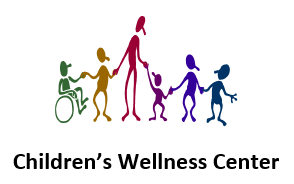Infant vaccinations are a cornerstone of preventative pediatric healthcare. Childhood vaccinations save an estimated 4 million lives annually, vaccinations have prevented an estimated 154 million deaths (95% children younger than five) from fourteen common contagious diseases since 1974, and vaccines have prevented countless more from suffering serious health consequences from severe disease.
How Vaccines Work
Vaccines intentionally expose a patient to inactive or weakened viruses or bacteria. The patient’s immune system then develops antibodies in response to the vaccine and remembers the infection. As a result, the patient will have a rapid immune response, effectively eliminating the virus when it is encountered in real life, preventing serious illness from occurring.
Common Vaccines and the Recommended Infant Immunization Schedule
The vaccines commonly administered to infants from birth through two years of age include the following:
- Hepatitis B Vaccine – Hepatitis B can cause liver damage and liver cancer. The disease is serious and has no cure.
- Respiratory Syncytial Virus (RSV) Vaccine – RSV is a common, serious, and life-threatening respiratory illness that often results in the hospitalization of infants and children.
- DTaP Vaccine – This vaccine protects a trio of serious diseases: diphtheria, tetanus, and pertussis (whooping cough).
- Hib Vaccine – Illness caused by the Haemophilus influenzae type b bacteria can be life-threatening and cause lifelong disabilities.
- Inactivated Polio Vaccine (IPV) – The polio virus infects the spinal cord and can lead to paralysis, lifelong disabilities, or death.
- Pneumococcal Conjugate Vaccine (PCV) – This vaccine protects against the bacteria that cause pneumococcal disease which can be deadly.
- Rotavirus Vaccine – Rotavirus often causes severe and deadly effects in infants and young children.
- Chickenpox Vaccine – Caused by the varicella-zoster virus, chickenpox is known for the painful blisters and rash it produces. It can be life-threatening for patients of all ages.
- Hepatitis A Vaccine – This highly contagious virus can cause serious or even fatal liver damage.
- Measles Mumps and Rubella (MMR) Vaccine – This vaccine protects infants from a trio of serious, infectious diseases.
- Influenza Vaccine – Helps protect children from influenza.
- COVID-19 Vaccine – Helps reduce the severity of COVID-19 infections.
The schedule of infant vaccines recommended by the Centers for Disease Control and Prevention includes the following:
- Birth
- 1st of three doses of the Hepatitis B vaccine
- One dose of the RSV vaccine
- One to Two Months
- 1st of five DTaP doses
- 1st of three or four Hib doses
- 1st of four doses of IPV
- 1st of four doses of PCV
- 1st of two or three doses of rotavirus vaccine
- 2nd Hepatitis B dose
- Four Months
- 2nd DTaP dose
- 2nd Hib dose
- 2nd IPV dose
- 2nd PCV dose
- 2nd Rotavirus dose
- Six Months
- 3rd DTaP dose
- 3rd Hib dose
- 3rd Hepatitis B dose
- 3rd IPV dose
- 3rd PCV dose
- 3rd Rotavirus dose
- COVID-19 vaccine available
- Seven to 11 Months
- Typically, no immunizations are administered during this period, unless your child has missed a dose.
- The influenza vaccine is available for babies six months and older.
- 12 to 23 Months
- 1st of two chickenpox doses
- 1st of two Hepatitis A vaccine doses
- 1st of two MMR vaccine doses
- 4th DTap dose
- 3rd Hepatitis B dose
- 3rd Hib dose
- 3rd IPV dose
- 4th PCV dose
This is the recommended schedule of vaccines that most pediatricians follow. However, every child is different, and our pediatricians work with parents to determine the best time for your unique child to receive immunizations.
Are Vaccines Safe for Infants?
All vaccines administered to children have undergone (and continue to undergo) rigorous testing and safety monitoring. This means that vaccines have been scientifically shown to be safe and effective.
Despite the immeasurable benefits of vaccines, they are continuously under scrutiny with the circulation of rumors and doubts concerning their safety. As a result, there are many myths about vaccines (particularly those administered to infants and children) such as the false claim that certain vaccines can cause autism or overwhelm the immune system. These claims have been proven false, and the benefits of vaccines far outweigh the side effects and risks associated with them.
If you have any concerns about vaccinating your children, we encourage you to discuss the risks, benefits, and science behind each recommended vaccine with your pediatrician.
Talk With an Experienced Pediatrician to Learn More About Infant Vaccinations
Immunizations are essential to protecting your child from contracting several life-threatening contagious diseases. While some vaccines might be required for your child to attend a school or participate in organized activities, others are administered electively based on your child’s lifestyle and exposure risk. Our pediatrician works with each of our patient’s parents or guardians to determine an appropriate, research-backed immunization schedule.
To learn more, we always invite parents and guardians to ask questions during appointments and wellness checks. We also encourage new parents to register for our New Parents Class where we discuss vaccines and a variety of other important topics. If you have any questions about infant vaccinations, please contact us.

